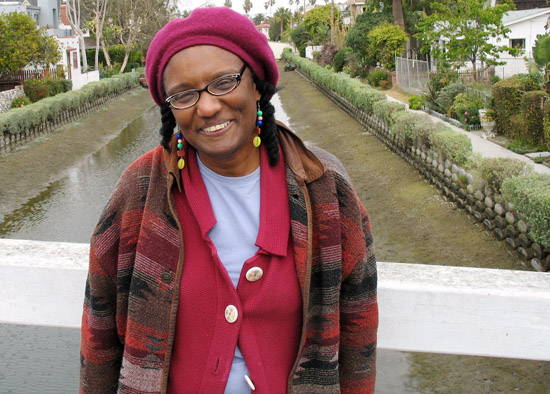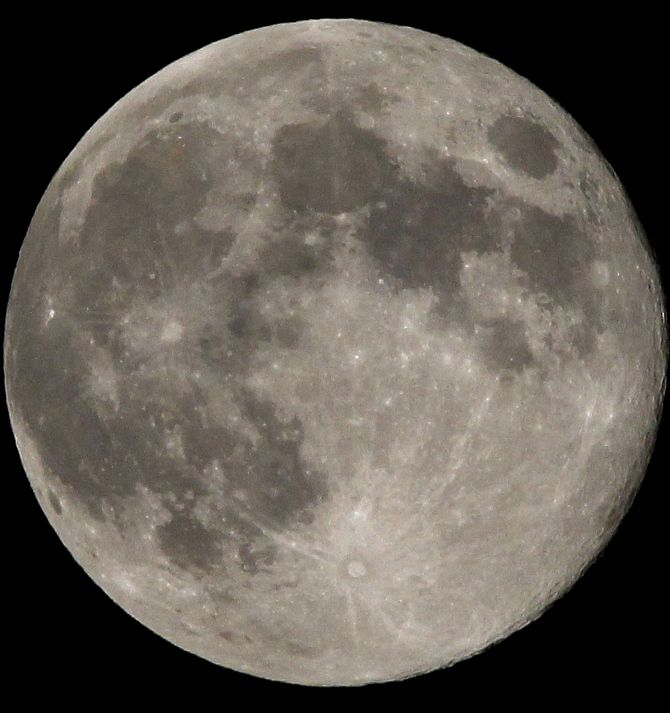Grant
Wood, oil on hardboard, 1934
1.
Noon. A
thresher waits
to wash the debris from his face into
a stone
bowl. His hair is stiff
with lice. A rooster
missed its hour,
tries
to scream the sun back down; it is Iowa,
1892. A draft
horse the color
of zinc tongues it own shadow.
The thresher is
about to join a table
of men — fourteen of them, as in the Last
Supper —
in the house
for lunch. The string of Xs
formed by
the backs of the men’s overalls marks a negation.
They lift the
offering to their
mouths: blood, flesh;
coffee, rabbit.
2.
Their
minds are on process:
thrash, shake, winnow. Two thousand
bushels
bagged in a pigeon-crusted loft.
Two thousand to go.
Man in the
hopper,
man on the stack of moth-gutted
wheat. Two horses
lashed to the ends
of a rafter, the drugged circumference
of
their labor turns the machine.
The man in the hopper
pushes
wheat into a chute, which separates
grain from chaff. A boy clears
the waste.
A shroud of white moths rises
from his arms.
3.
The
thresher’s forehead is the color of torn roots, his face
and
neck empurpled by sun, spelled only by quick
reshufflings of
cirrus.
He is not
unhappy, only
afflicted by variables.
Hail, rust,
blight, eyespot,
black chaff,
pink seed, flood,
endless depth of sky, endless dark of his bedroom
in which the eye
drowns.
4.
Ornate
wallpaper, the smell of cooked meat
like the flush of warmth
back
to a cold extremity:
women bring bowls
to the table,
men in
fellowship with men as a reward for labor.
But for every
spotless rack
of cerulean china
there is a night
when the
rooster
conjures a false dawn;
in its intervals
silence
rages in the English garden;
candle flames like commas
prolong
the dark. This is why
aprons are bleached daily,
why the barn
is scrubbed as reclamation from
scat and sun, why
each man asks
for more meat, more labor
as if bodies
are made to be consumed.
5.
To chew
the roots of cowbane is a way out. Laudanum under
the sink is
a
way out. Also, the concept
of being a metaphor
for wheat:
when
torn open: raw, prone material
that broken across
a machine or
a winter
is malleable to
any use; touch me and blue shale
beneath
us is tamped an inch
towards the underworld.
What if
they did not want
a way out? Night’s oaks swallow wrens, so
dark
the barn is imperceptible. To sit at that
table emptied of
its men is to
learn to take solace in what pours
from the
window’s open mouth.
6.
The last
man raises
his face from the bowl. The prairie
is both hurtling
and
standing still. It will
not rearrange itself no
matter
how deeply he scrawls his attention
over it. He takes in the
thick
concussions of light.
He is drawn back to the barn
and
past it, where pheasants explode
from the ditches. He is not
hungry
anymore. Someone will take his seat
at the table.
Someone will lower their head
and ask the Lord to be made
more
bare to the sun.
A clot of moths unravels
across the man’s
eyes. He asks for no other
veil over the stillness.
And the
Lord
provides.












